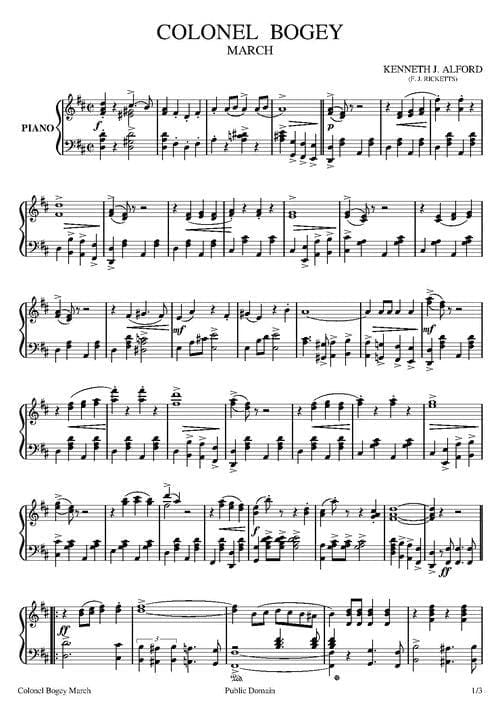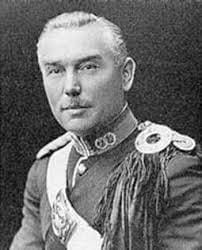By Paul Willms
The term “bogey” in golf has an interesting origin tied to British military culture. In the late 19th century, “Colonel Bogey” emerged as an imaginary “standard opponent” for golfers, representing a benchmark score of one over par on a hole. This concept was popularized by British serviceman J. Ricketts, who in 1914 published the marching tune “Colonel Bogey.” The tune is said to have been inspired by a military officer who preferred whistling a descending minor third—heard at the start of each melodic line—over shouting “Fore!” during golf games.
Later, English composer Malcolm Arnold expanded the tune’s legacy with “The River Kwai March,” composed for David Lean’s 1957 film *The Bridge on the River Kwai*, set during World War II. This counter-march added a cinematic dimension to the original melody. The tune also made a cultural nod in the short-lived series *Jesse Stone* (starring Tom Selleck), where the character watches the film repeatedly and humorously connects it to a scene where a Japanese prison camp commander urges starving prisoners to “be happy in your work,” a phrase Jesse echoes to a motel cleaning lady.
Thus, “Colonel Bogey” bridges golfing tradition and military music, evolving from a whistled golf call to a globally recognized march.


























































